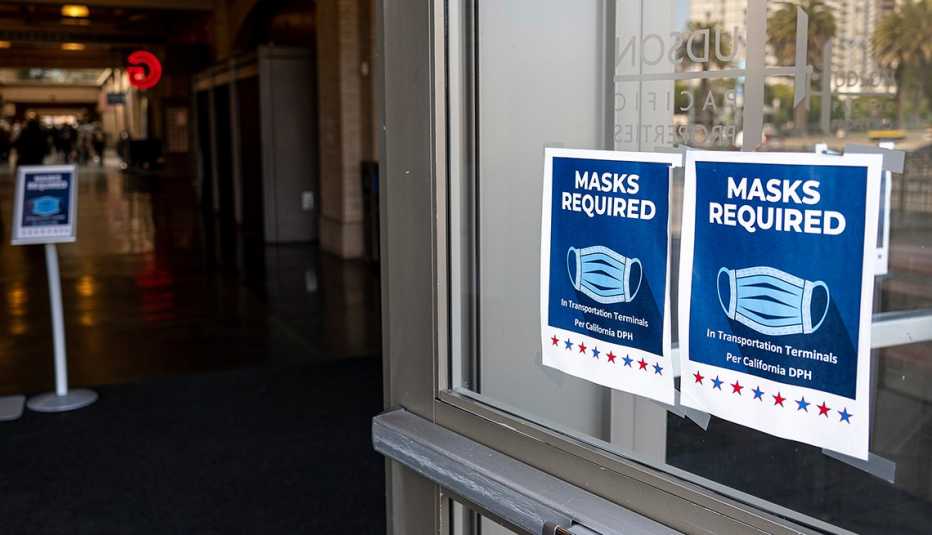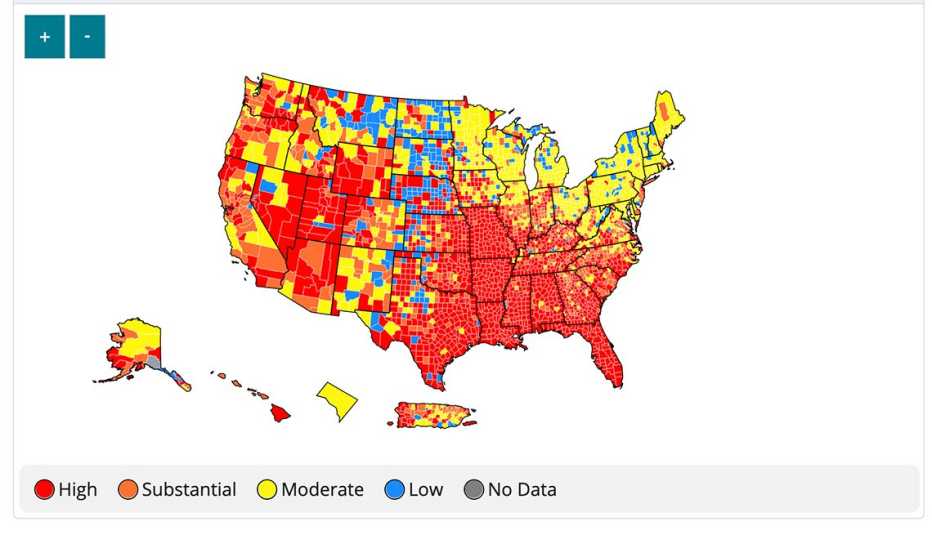AARP Hearing Center


Two months after announcing that vaccinated Americans can, for the most part, go mask-free, U.S. health officials are now recommending that they mask up in some circumstances.
Teachers, students, staff and visitors are advised to wear masks in schools throughout the U.S., regardless of vaccination status, the Centers for Disease Control and Prevention (CDC) announced on July 27. And vaccinated individuals who live in or visit areas of substantial or high COVID-19 transmission — which is currently about three-fourths of the country — should also wear masks in public indoor settings. (You can check the CDC's website for a county-by-county look at transmission rates to see if the new guidelines apply to you.)
Concerns over delta variant spark new guidance
The updated guidance comes on the heels of new data related to the highly contagious delta variant, which in recent weeks has been tearing through unvaccinated communities and is now responsible for more than 80 percent of new COVID-19 cases in the U.S.
This new research shows that “in rare occasions, some vaccinated people infected with the delta variant after vaccination may be contagious and spread the virus to others,” CDC Director Rochelle Walensky, M.D., said. “This new science is worrisome and unfortunately warrants an update to our recommendations.”
In fact, a study released by the CDC on July 30 found that vaccinated people infected with the delta variant have similar viral loads as unvaccinated individuals. “High viral loads suggest an increased risk of transmission,” Walensky said in a July 30 statement — meaning that while a vaccinated person may not get sick from the infection, they can still spread the virus to others, including people who are more at risk for severe illness, such as unvaccinated or immunocompromised individuals.




































































More on health
State-by-State Guide to Face Mask Requirements
States, cities and counties have largely eased or ended mandatesHow to Make a More Effective Face Mask
Expert tips on the ideal fabrics, filters and fit for added protection against coronavirus
CDC: Two Face Masks Protect Better Than One
How to properly wear and upgrade your mask for added protection against the coronavirus